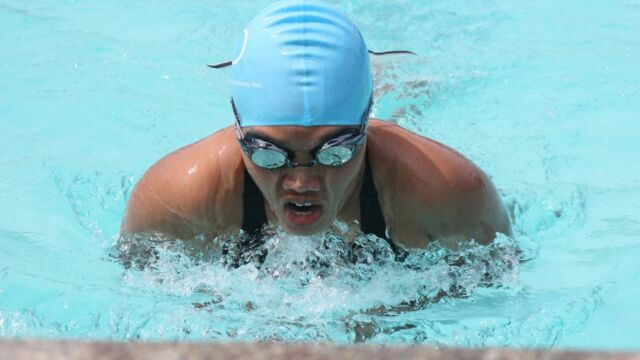Afro Swim cap designed for black swimmers not permitted at Tokyo Olympics

Black swimmers will not be allowed to wear caps designed to protect natural balck hair at the Tokyo Olympics this summer.
A swimming cap purposely designed to protect natural black hair has been banned from this year’s Olympic games to be held in Tokyo in the summer.
Discover our latest podcast
The black-owned brand that makes these caps, Soul Cap, said their application for the caps to be certified for use at competitions was rejected as according to the governing body, they do not comply with ‘the natural form of the head’.
More under this adMore under this adThe International Swimming Federation, FINA explained that,
to our best knowledge, the athletes competing at the international events never used, neither require to use, caps of such size and configuration.
Soul Cap makes swimming caps to fit over and protect dreadlocks, afros, weaves, hair extensions, braids, and thick and curly hair during swimming.
More under this adMore under this adHeartbroken but not surprised
Speaking to BBC Radio 1 Newsbeat, a young swimmer, Kejai Terrelonge, 17 says swimming with her natural hair is one of the many barriers she faces as a black swimmer.
According to her, the common and approved caps are not big enough to accommodate the volume and texture of her hair.
Using the smaller swimming caps that everyone else would use - it would fit on my head but because I put [protective] oil in my hair, when I was swimming it would just keep sliding off and my hair would get wet.More under this adMore under this ad
Natural black hair is naturally drier than other hair and the sodium hypochlorite (bleach) found in swimming pools makes it dry out more, leading to hair damage.
Diversity in elite sports
Soul Cap previously partnered with Alice Dearing who qualified for Tokyo Olympics -the first ever black female swimmer to represent Team GB at the Olympics.
More under this adMore under this adDearing also co-founded the Black Swimming Association (BSA), which said it is ‘extremely disappointed’ by FINA's decision.
It's (FINA's decision) one we believe will no doubt discourage many younger athletes from ethnic minority backgrounds from pursuing competitive swimming. We believe this statement made by FINA confirms what we already know: the lack of diversity in elite swimming and in the higher positions in global aquatics and the lack of urgency for change.More under this adMore under this ad
Recent figures from Sport England show that 95% of black adults and 80% of black children in England do not swim at all. Statistics point to only 1% of registered swimmers with the governing body identifying as black or mixed race.